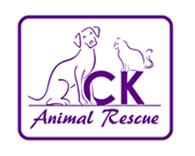Foster FAQ
Are you considering becoming an animal foster parent but the what-ifs are holding you back? We get it! Some of our very best animal foster parents were once people who said “I could never do that!”. Let’s clear up some of those questions for you. We welcome foster failures too! Meaning if our foster families fall in love with their foster and want to adopt the dog or cat in their care, that’s okay with us!
How long will a foster stay with me?
This really depends on several variables and what you decide you can accommodate. There are basically 4 classifications of fostering within our rescue.
- Temp Care: You provide a safe, loving environment for one of our rescue animals to cover for the foster family on vacation or work travel. This is typically a defined amount of time ranging from one day to 2 weeks.
- Short-Term Fosters: Adoptable or short-term rescue animals may stay in foster care for one week to several months. The duration is unpredictable; younger and more social dogs find homes swiftly, while older or timid ones might stay longer. On average, their stay spans around two months.
- Long-Term Fosters: Some dogs and cats in our care face challenges like fearfulness, requiring extended periods to learn trust and adapt to new environments and people. Dogs or cats who are in long-term care MAY be deemed adoptable over time for their forever homes.
- Permanent Fosters: We often take in dogs or cats classified as unadoptable due to age or certain medical conditions. We believe that these innocent souls are just as deserving of a stable home, happiness and the best quality of life for whatever time they have left. These dogs and cats will live in foster homes as the family’s companion while the rescue maintains the responsibility and expense of their vet care, food and supplies.
- Purple Leash: CK Animal Rescue proudly introduced the Purple Leash program, offering short-term care to pets of individuals fleeing domestic abuse or undergoing medical treatment. This support, lasting up to four weeks, ensures the safety and well-being of these pets during challenging times.
Can I choose which dogs I am able to foster?
Absolutely! We post new arrivals or current fosters needing a new placement on our Facebook group and email our foster list. We provide as much information as possible and if a dog aligns with your home, you can simply reply/comment. We never force foster placements, ensuring your comfort and the animal’s well-being.
Can I foster a cat or kitten?
Certainly! We welcome cats and kittens into our foster program. Our intake depends on available foster homes so we are always looking for more fosters. Due to our non-shelter status, foster families play a crucial role in providing these cats with a safe and loving environment.
Will it cost me a lot of money?
Absolutely not! While you are the primary caregiver to your foster animal, they belong to CK Animal Rescue. All veterinary care and medical expenses are the responsibility of the rescue. We have accounts at several veterinary clinics and all approved vetting will be charged to our accounts. We are fortunate to have many great supporters and a generous supply of food, collars, leashes, toys etc. and this is available during our office hours for any foster home to pick up.
Having transportation is a MUST. You will be asked to drive to pick up your foster when they enter our foster program. Usually, the dogs/cats come to our office in Chatham where we can put our ID tags on them with a special number for that animal. We also depend on our fosters to help us by transporting your foster to awareness or adoption events (local to you) or to a meet & greet with a potential adopter at the Chatham office or in their home in your area.
I work full-time/have children/have a busy life. How will I have the time for a foster animal?
Our foster families are varied. Many work full-time or part-time, some have children or grandchildren, some have a house full of people, and others are flying solo. We ask a lot of questions to get a clear picture of what size, temperament, and energy level of the animal would best fit your abilities and situation. We do, however, request that dogs are NOT left for more than 4-5 hours without access to relieve themselves. You can manage this by taking a lunch break to attend to their needs, arranging for a trustworthy family member or friend to assist, or coordinating with another rescue team member for support.
Are rescue animals contagious/will my pet’s health be jeopardized?
All of our rescue animals receive a veterinary exam, vaccinations are updated if necessary, and they are screened for parasites and given flea/tick preventatives. However, there is always a risk, even if you do not foster. Simply walking in your own neighbourhood, visiting off-leash parks, vet waiting rooms etc. can expose your pet to various things. Keeping your personal pet(s) up to date on vaccinations, maintaining regular wellness checks, and providing good quality food are ways that you can best defend your pet(s) health under any circumstances.
Will my foster dog be housetrained?
Fostering 101: Pee happens! Sometimes you will get lucky however, even with a dog that may have been housetrained previously, there have been major changes in these animals’ lives and this can cause confusion, anxiety and stress. Every new animal that is introduced to your home should be treated as not housetrained, monitored and provided an abundance of opportunities to perform their ‘duties’ outside. Patience, cleaning supplies, belly bands and leaning on your fellow foster homes for tips and support will get you through the bumps while saving a life!
Can I adopt my foster dog or cat?
If the foster family would like to adopt their foster dog or cat, an application, adoption fee, and contract are required just as they are for everyone. Please understand that we have a process to keep the playing field fair for all while ensuring that each rescue animal is placed in a great home. As such, your application will be treated as all others with no favouritism. Also note, that being approved as a foster home does not guarantee that you will be approved to adopt, even in the case of a dog you are fostering. If you do decide to adopt one of our dogs or cats, we ask that you continue to help foster another dog or cat in need.
Won’t it be hard to give the animal up when they are adopted?
The simple answer…yes, of course. Fostering is undeniably challenging, but it’s the heart of what we do. If it were easy, we wouldn’t be making a significant impact. Despite the tears, the joy of seeing your foster pet thrive in a permanent, loving home overshadows the struggles. Adopting the mindset of a temporary caregiver, like if you were to be dog-sitting, helps. You’re their advocate and guide, paving the way to their forever family. During meet ‘n greets, we involve a foster family member, ensuring a genuine love connection. It’s natural if it doesn’t happen every time; what matters most is ensuring each pet finds their happiest place.
Can I contribute financially toward the care of my foster dog or cat?
Yes, you can! We have a few foster families who enjoy helping our rescue by paying for some medication or training and in return, they get a tax receipt. All we need are copies of the invoices where food, medication, toys, etc were purchased to attach to our copy of the receipt. As a registered non-profit and being 100% volunteer-based, we very much appreciate the added assistance by our foster families.
Can I contact your rescue to speak to someone if I still have questions?
You sure can! If you still have a few questions, we are more than happy to answer them for you. Please call our office and leave a message at 519-354-5000 or by email at chathamkentanimalrescue@gmail.com If there is a specific area of our rescue where you would like to contact someone, please visit our Team Page.

